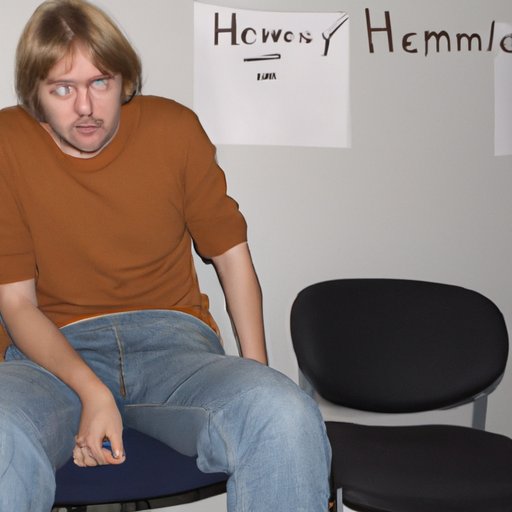
I. Introduction
Hemorrhoids are swollen veins in the lower part of the rectum and anus. They can cause pain, itching, and bleeding, among other symptoms. The purpose of this article is to help readers identify if they have hemorrhoids and provide information on self-care, prevention, and treatment options.
II. Signs and Symptoms
The most common symptoms experienced by people with hemorrhoids include:
- Pain and discomfort
- Itching or irritation
- Bleeding during bowel movements
- Swelling around the anus
- A lump near the anus
Pain and discomfort are often the first symptoms people notice. This can be caused by internal or external hemorrhoids. Itching and irritation are also common, and they can be caused by fecal matter irritating the sensitive skin around the anus. Bleeding during bowel movements is often caused by internal hemorrhoids, which can become irritated and bleed when passing stool. Swelling around the anus and a lump near the anus may be signs of external hemorrhoids.
III. Risk Factors
Several risk factors increase the likelihood of developing hemorrhoids, including:
- Age (hemorrhoids are more common in people over age 50)
- Pregnancy
- Chronic constipation or diarrhea
- Heavy lifting or straining during bowel movements
- Sedentary lifestyle or lack of exercise
- Poor diet lacking fiber
- Obesity
By making changes to lifestyle, many people can reduce their risk of developing hemorrhoids.
IV. Self-Check
To perform a self-examination for hemorrhoids, it is essential to:
- Inspect the anus and surrounding area for swelling, lumps, and irritation
- Gently press around the anus to check for tender spots or bulges
- Check for any signs of bleeding during bowel movements or on toilet paper
It is important to seek medical attention if hemorrhoids are suspected to rule out any other possible conditions and to receive proper treatment.
V. Home Remedies
Several natural remedies can help ease hemorrhoid symptoms, including:
- Warm baths several times a day for 10-15 minutes
- Applying aloe vera gel, coconut oil, or witch hazel directly to the hemorrhoids
- Using over-the-counter creams or ointments to reduce itching and swelling
- Applying an ice pack or cold compress to the area for a few minutes at a time
It is essential to follow the instructions for each remedy to ensure safety and effectiveness.
VI. When to See a Doctor
If experiencing any of the following, it is essential to seek immediate medical attention:
- Sudden, severe pain
- Excessive bleeding during bowel movements
- Fever
- Dizziness or weakness
- Symptoms that persist despite self-care remedies
It is also necessary to seek medical attention if experiencing prolonged bleeding, if there is a family history of colon or rectal cancer, or if having difficulty with bowel movements.
VII. Prevention
The following lifestyle changes can help prevent the occurrence of hemorrhoids:
- Consuming a high fiber diet
- Exercising regularly
- Drinking plenty of fluids
- Avoiding long periods of sitting
- Taking breaks during prolonged sitting
- Avoiding straining during bowel movements
Prevention is the best way to avoid hemorrhoids as they can be challenging to deal with when already present.
VIII. Treatment Options
Several treatment options are available for hemorrhoids, including:
- Over-the-counter creams, ointments, and suppositories to alleviate symptoms
- Prescription medications for more severe symptoms
- Minimally invasive procedures (e.g., rubber band ligation, sclerotherapy, infrared coagulation) to shrink hemorrhoids
- Surgery to remove hemorrhoids in severe cases
Each treatment option has pros and cons, and it is essential to discuss with a healthcare provider to determine the most appropriate treatment for individual needs.
IX. Conclusion
In conclusion, hemorrhoids can cause discomfort, pain, and other symptoms. Identifying if one has hemorrhoids is relatively simple, and natural self-care remedies can help soothe the symptoms. Making lifestyle changes and seeking medical attention if any warning signs occur can help reduce the chance of developing hemorrhoids while proactive care can manage existing hemorrhoids.




